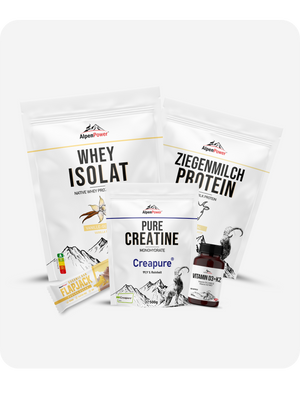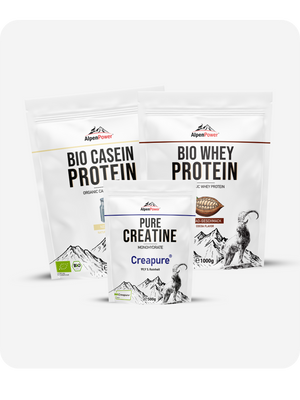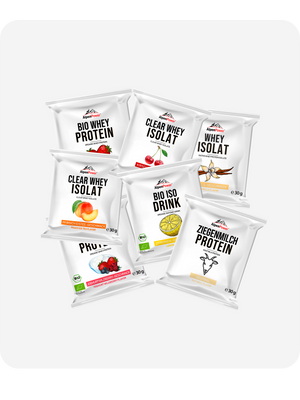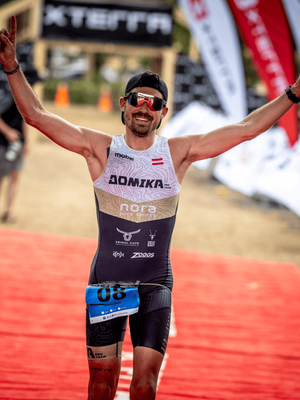Why is the off-season crucial for building strength?
The off-season is a crucial phase in the training of many athletes in order to focus specifically on building muscle mass and strength. During this time, the foundation is laid for the coming season by combining hypertrophy training with an optimally coordinated nutrition strategy. Protein intake plays a central role here, especially in the form of high-quality biological whey protein. The scientific basis for the importance of organic whey lies in its high biological value and its ability to efficiently stimulate muscle protein synthesis.
The importance of organic whey protein
Whey protein, a whey protein, is considered one of the most effective proteins for muscle building due to its amino acid composition. With a biological value of around 104, it is converted particularly efficiently by the human body into endogenous protein. Organic Whey Protein stands out from conventional products due to its sustainable origin and gentle processing. It is obtained from organic milk, contains no additives and retains its functional properties, which makes it beneficial for both performance enhancement and general health.
The optimum time for protein intake
A central mechanism by which whey protein supports muscle building is the provision of essential amino acids, particularly leucine. This amino acid plays a key role in activating muscle protein synthesis, the process responsible for muscle growth and repair. Studies show that ingesting whey protein, ideally immediately after training, maximizes anabolic effects. Studies by Tang et al (2009) show that the immediate intake of whey protein after training leads to significantly higher muscle protein synthesis than a delayed intake. This is due to the fact that the sensitivity of muscles to nutrients is particularly high in the so-called "anabolic window" immediately after physical exercise.

Research by Schoenfeld et al. (2013) also underlines the importance of timing. According to this, consuming 20 to 30 grams of protein within the first 30 minutes after training optimally promotes regeneration and muscle growth. The rapid availability of whey protein plays a decisive role here, as it is digested and absorbed more quickly than other protein sources such as casein or vegetable proteins.
Why organic whey is better
In the off-season, when hypertrophy training is the main focus, the integration of Bio-Whey protein into the daily diet offers numerous benefits. As well as promoting muscle growth, it supports recovery and helps to reduce muscle fatigue. The holistic approach of Bio-Whey, which comes from sustainable production, also contributes to a more conscious diet and minimizes the burden of unnecessary additives.
Building strength starts with training - and ends with the right diet
In addition to the quality of the protein intake, the combination with other macronutrients is crucial. The simultaneous intake of proteins and carbohydrates directly after training has proven to be particularly effective, as the carbohydrates promote insulin secretion and thus facilitate the absorption of amino acids into the muscles. A shake made from organic whey protein and a carbohydrate source such as a banana therefore provides an optimal basis for regeneration and muscle building.

Conclusion
In summary, organic whey protein is an essential component of successful hypertrophy training due to its high biological value and rapid availability. Through targeted integration into the nutritional strategy during the off-season, athletes can efficiently build up their muscle mass and increase their performance in the long term. The scientific findings on the timing and functionality of whey protein underline its importance for evidence-based nutrition in sport. Organic whey, as offered by AlpenPower, combines the highest quality with sustainability, making it an ideal choice for ambitious athletes who want to support their strength building with a conscious nutritional strategy.
Sources https://www.sciencedirect.com/science/article/pii/S0002916523239209 https://pubmed.ncbi.nlm.nih.gov/24299050/











